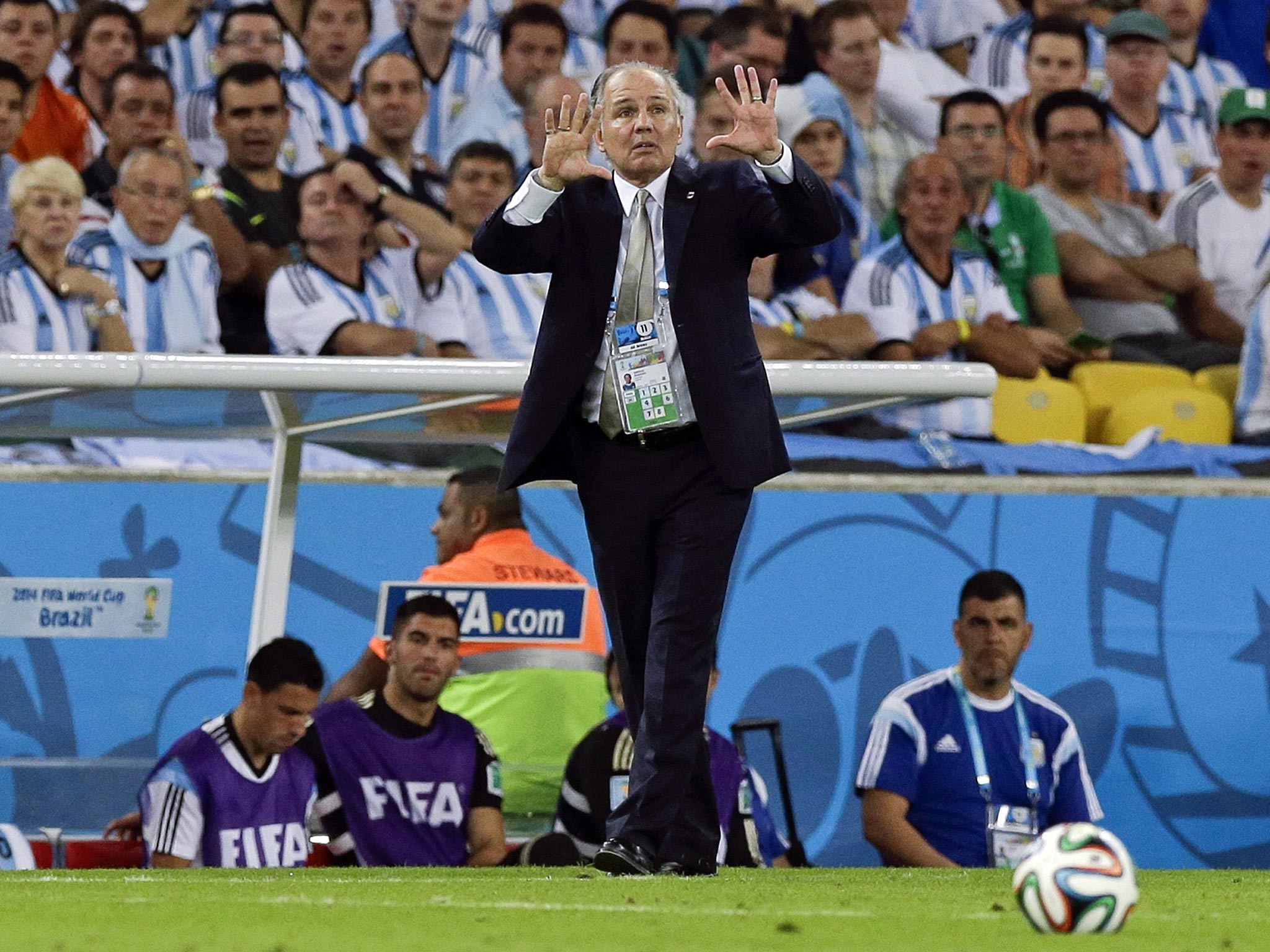World Cup 2014: Why is South America full of coaching talent?
Colombians lead three teams in Brazil, but globally Argentinian coaches are in vogue

When Ecuador and Honduras line up tonight before kick-off in Curitiba and face the dugouts the players will see two very familiar faces. On the Ecuadorean bench will be Reinaldo Rueda, who led Honduras to and during the 2010 World Cup. On the Honduras bench will be Luis Fernando Suarez, who led Ecuador to and during the 2006 World Cup.
If this is not enough of a coincidence both men are Colombian. Indeed, there are a trio of expat Colombian coaches in action in Brazil today with Jorge Luis Pinto leading Costa Rica against Italy.
And Los Cafeteros themselves? This hotbed of international coaches are coached by an Argentine, Jose Pekerman, who took his native nation to the last eight in 2006. This is actually unsurprising. Colombia has always had a profound respect for Argentine football. During the late 1940s, when a breakaway league made Colombia the centre of South American football, the Argentines at Millonarios (including Alfredo Di Stefano) were the biggest draw. Their 1993 5-0 World Cup qualifying victory in Buenos Aires is one of the nation’s most treasured results. So appointing an Argentinian coach is logical.
It is not just in Colombia, however, that Argentines lead. The World Cup’s new darlings, Chile are coached by one, Jorge Sampaoli as, of course, are Argentina (Alex Sabella). Working at the elite level in Europe are Marcelo Bielsa (Marseilles), Diego Simeone (Atletico Madrid), Mauricio Pochettino (Tottenham), Eduardo Berizzo (Celta Vigo), plus Valencia’s Juan Antonio Pizzi, Argentine born-and-bred, though he went on to play for Spain.
Waiting in the wings are three more: former Barcelona boss Gerardo Martino, Ramon Diaz, who had a bizarre spell at Oxford United but has done well elsewhere and just left River Plate after leading them to the title, and the up-and-coming Luis Zubeldia. Just 33 years old, currently coach of Ecuador’s LDU Quito, like Martino and Diaz he was named this month in World Soccer magazine’s index of most in-demand coaches.
Argentine coaches are in fashion at present in large part because of the influence of Bielsa, whose disciples include many of the above (Martino and Pochettino played under him) and, crucially, Pep Guardiola. Bielsa demands a relentless intensity with high-pressing, quick transitions and usually a trio of strikers. His belief in this is perhaps too dogmatic for the biggest of clubs, especially faced with a long and demanding league season, but adaptations are flourishing.
It is not just Argentine coaches who are making a mark. With Brazil and Uruguay coached by nationals there are eight South American coaches at the World Cup, a quarter of the total. In Europe, Chilean Manuel Pellegrini has just won the title with Manchester City and Uruguayan Gus Poyet impressed at Brighton and Sunderland.
These though, are national exceptions and there are no Brazilian coaches operating at the highest level in Europe. This may seem odd, given there are so many Brazilian players at Champions League clubs but the failures of Wanderley Luxemburgo at Real Madrid and Luiz Felipe Scolari at Chelsea has put clubs off, as have the high wages required to lure Brazilian coaches from the domestic game.
There is also a linguistic aspect. It is easier for the Spanish speakers elsewhere to move to Europe (or work in central America) than ones who speak Brazilian Portuguese. Football may be a universal language, but as England found with Fabio Capello, only up to a point.
Join our commenting forum
Join thought-provoking conversations, follow other Independent readers and see their replies
Comments
Bookmark popover
Removed from bookmarks